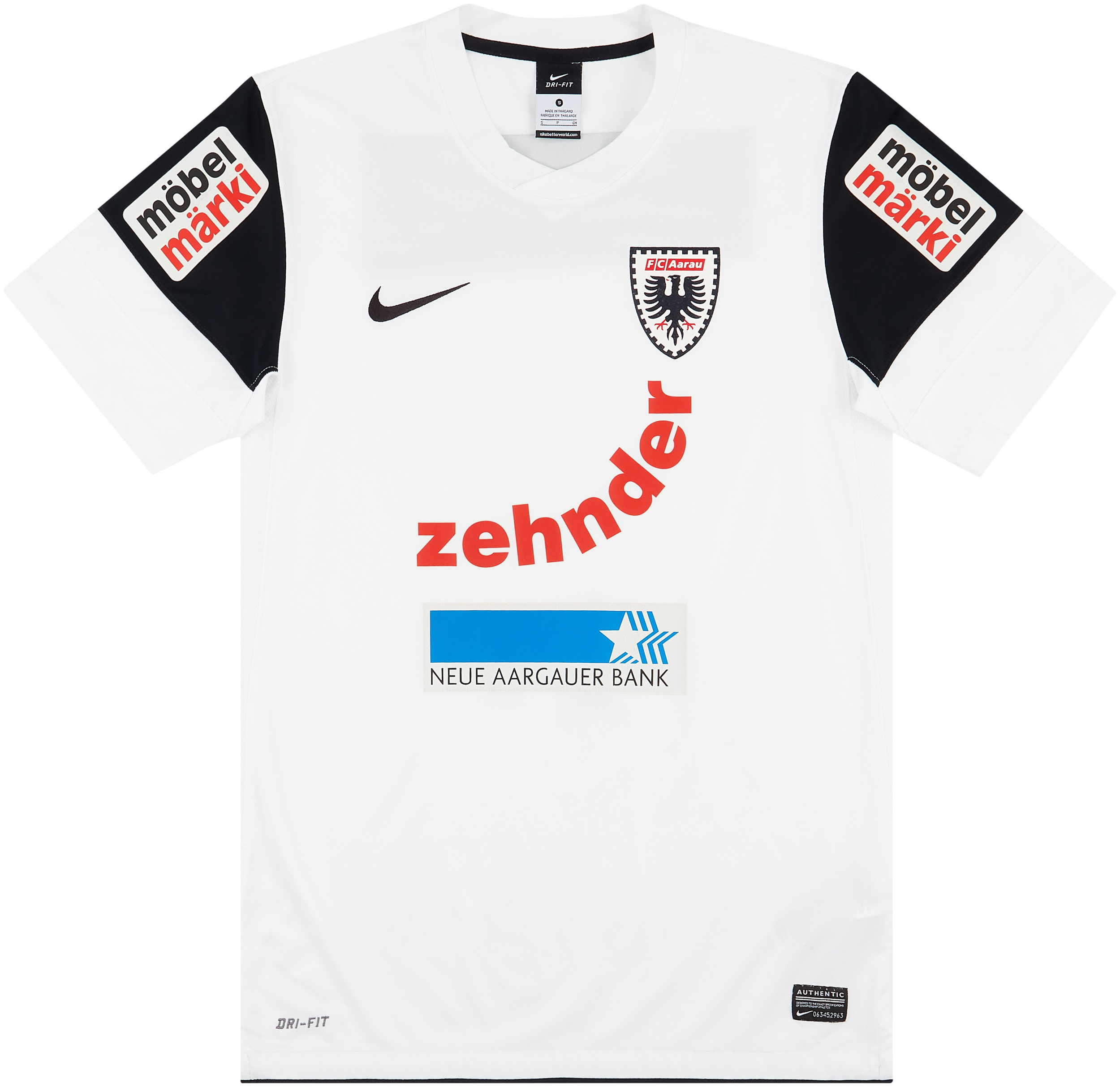Aarau
Introduction FC Aarau, a football club based in Aarau, Switzerland, is a storied institution that encapsulates the passion and history of Swiss football. Founded in 1902, Aarau has become a key player in the Swiss football landscape, embodying both the spirit of competitive sports and the deep-rooted cultural pride of its local community. Known for […]
1992-94 FC Aarau Match Issue Home Shirt #11
296.99£ - ca: €350
1992-94 FC Aarau Match Issue GK Shirt #1
177.99£ - ca: €210
2010-11 FC Aarau Home L/S Shirt - 8/10 - (M)
58.99£ - ca: €70
2012-13 FC Aarau Home Shirt - 8/10 - (S)
47.99£ - ca: €57
2010-11 FC Aarau Home Shirt - 6/10 - (S)
41.99£ - ca: €50
2002-03 FC Aarau Home Shirt - 5/10 - (M/L)
41.99£ - ca: €50
2014-15 Aarau Youth Away Shirt - 8/10 - (S)
29.99£ - ca: €35
2000s FC Aarau Home Shirt - 8/10 - (XL)
29.99£ - ca: €35
2000s Team Aarau Hockey Away Shirt - 8/10 - (XXL)
23.99£ - ca: €28
2010-11 Aarau Away L/S Shirt - 3/10 - (L)
11.99£ - ca: €14
Introduction
FC Aarau, a football club based in Aarau, Switzerland, is a storied institution that encapsulates the passion and history of Swiss football. Founded in 1902, Aarau has become a key player in the Swiss football landscape, embodying both the spirit of competitive sports and the deep-rooted cultural pride of its local community. Known for its striking red and white colors, the club has witnessed numerous ups and downs throughout its history, but it has remained resilient and committed to developing young talents and promoting the sport at a grassroots level.
Club History
The history of FC Aarau dates back over a century, when it was established by a group of local football enthusiasts in 1902. Initially competing in regional leagues, the club made its way to the Swiss top-flight leagues in the 1920s. Over the decades, Aarau has experienced significant shifts in fortune. Key moments in its history include its promotion to the Swiss Super League, which it achieved several times, with the most notable ascent occurring in the 1980s and 1990s. The club’s iconic stadium, the AFG Arena, further represents a milestone in its journey, having undergone renovations and expansions to enhance the matchday experience for fans.
Achievements
FC Aarau’s trophy cabinet reflects its competitive spirit and storied history. The club has won the Swiss Championship title once, in 1926, showcasing its ability to compete with the best in Swiss football. Additionally, Aarau has found success in the Swiss Cup, claiming victory multiple times, with its most recent triumph in 1992. These achievements have not only solidified the club’s place in Swiss football history but have also laid the groundwork for a strong legacy that continues to inspire future generations of players and supporters. Despite facing relegation challenges in recent years, FC Aarau continues to fight for promotion, demonstrating its unwavering spirit and dedication to the sport.
Significant Players and Matches
Over its long history, FC Aarau has been home to many notable players who have left a lasting impact on the club’s legacy. One such player is the legendary striker Marco Jäkel, who had a prolific career with Aarau during the late 1990s and early 2000s, becoming the club’s all-time leading scorer. Other players like Davide Chiumiento and Chris Gunter also made significant contributions on the pitch, further establishing Aarau as a talent-producing machine. Landmark matches, such as the 1992 Swiss Cup final against Lausanne, where Aarau triumphed 1-0, resonate with fans as examples of the club’s grit and determination in high-stakes scenarios.
Cultural Impact
FC Aarau’s impact goes beyond the pitch, deeply ingraining itself in local culture and identity. The club serves as a source of pride for the city of Aarau and its residents, with matchdays transforming the town into a vibrant hub of football enthusiasm. The loyal fanbase, known as the “Aarau Gäng,” plays an essential role in creating a charged atmosphere during games at the AFG Arena. The club has also been active in community initiatives, fostering youth football programs that promote sportsmanship and inclusivity. This commitment to community development has solidified FC Aarau’s position as not only a football club but also a community pillar.
Conclusion
In conclusion, FC Aarau represents a rich tapestry of Swiss football history, characterized by its passionate fanbase, notable achievements, and cultural significance. From its inception in 1902 to its modern-day endeavors, the club remains committed to excellence both on and off the field. As it continues to nurture talent and engage with the community, FC Aarau holds a special place in the hearts of its supporters and occupies a vital position in the landscape of Swiss football. Looking ahead, the club aims to reclaim its status among the top ranks of Swiss football, keeping its legacy alive for generations to come.









